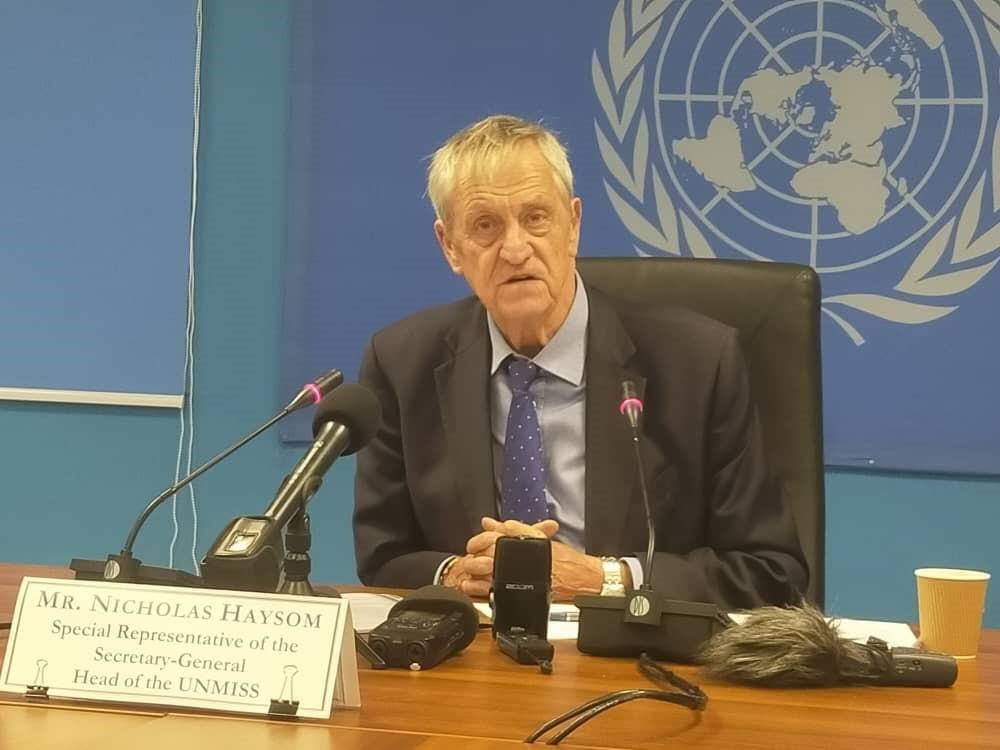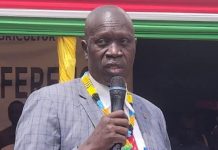Africa-Press – South-Sudan. The United Nations Mission in South Sudan (UNMISS) raised concerns about the developing impact of the Sudanese conflict on South Sudan’s peace implementation process.
Addressing the members of the UN Security Council on Tuesday, Nicholas Haysom, Special Representative of the UN Secretary-General and head of UNMISS, said the ongoing conflict in Sudan is continuing to have devastating impacts ranging from humanitarian to political.
Haysom said South Sudan continues to implement the revitalised peace agreement, but the endless fighting in Khartoum may pose a threat in several aspects. He appealed to President Salva Kiir to juggle both the mediation of the Sudanese conflict and the peace process hand in hand.
“While President Kiir and IGAD’s efforts to end the conflict in Sudan remain commendable, the timeline of the peace process in South Sudan should not be allowed to become the opportunity cost of these efforts,” he said.
However, from a political aspect, Haysom said the conflict in Sudan may slightly reduce the speed of the implementation of the peace agreement.
“On the political side, the conflict in Sudan reduces the much-needed bandwidth (both domestic and international) to focus attention on South Sudan during this critical phase of its transition,” he said.
He stated that since mid-April, over 117,000 women, children, and men have crossed over into South Sudan from Sudan along the border areas.
Haysom said that due to the huge number of people crossing into South Sudan and the limited resources in the hands of the government, it remains a challenge to handle the situation.
Also, he noted that the crisis in Sudan poses a huge economic problem for South Sudan, citing the interruption of imports from Sudan and an alleged threat to oil production as problems.
“The sudden interruption of imports from Sudan has resulted in essential commodities being ‘out of reach’ for ordinary people in South Sudan. Crude oil exports from South Sudan through Port Sudan are an economic lifeline that, if interrupted, as recently threatened, could have devastating effects on the South Sudanese economy,” he explained.
On June 6, 2023, the Conversation published an article authored by Prof. Mbaku of Weber State University warning about the political impacts of the war in Sudan.
“Instability in Sudan could derail South Sudan’s peace process. It could relegate the country to persistent instability, economic deterioration, pervasive corruption, and self-dealing by civil servants and political elites,” Mbaku noted.
Just a week ago, the national minister of petroleum, Puot Kang Chol, also warned that the war, if not stopped, could interrupt the country’s oil flow and dwindle South Sudan’s revenue basket.
On April 15, heavy gunfire and explosions rocked the capital Khartoum, which would later mark the outbreak of war in Sudan.
The army, led by the leader of Sudan’s sovereign council, Abdel Fattah al-Burhan, and the Rapid Support Forces (RSF), led by Burhan’s deputy-turned-rival Mohamed Hamdan Dagalo, known as Hemedti, have since accused each other of starting the conflict.
Source: The City Review South Sudan
For More News And Analysis About South-Sudan Follow Africa-Press






